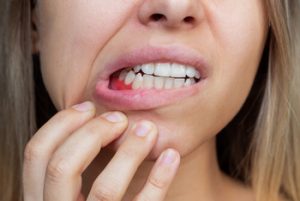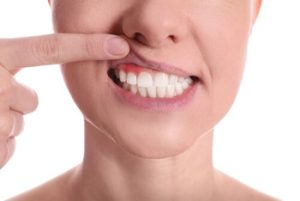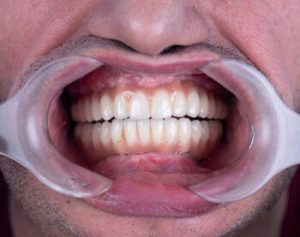Bad breath can be embarrassing, especially when it persists despite regular brushing and flossing. If you’ve ever asked yourself, does gingivitis cause bad breath? You’re not alone. The answer is yes, it absolutely can. In fact, gum disease is one of the most common culprits behind chronic bad breath. Let’s explore how this form of gum disease affects your breath and what you can do to prevent and treat it before it becomes a more serious problem.
What Exactly Is Gingivitis?
Gingivitis marks the beginning stage of periodontal disease, a mild but potentially serious condition that affects the tissues surrounding your teeth. The primary cause is poor oral hygiene, which leads to the accumulation of plaque, a sticky layer of bacteria that forms along the gum line. When gingivitis is left untreated, it can progress into a more severe form of gum disease known as periodontitis.
 You might notice symptoms such as:
You might notice symptoms such as:
- Red or swollen gums
- Bleeding gums when brushing or flossing
- Tender gums
- Receding gums or a change in the way your teeth fit together
- And yes, bad breath
So, Does Gingivitis Really Cause Bad Breath?
Yes, gingivitis causes bad breath, and it’s more common than many people realise. This type of bad breath is often called “perio breath”, and it tends to linger even after brushing your teeth.
Here’s why: the inflammation caused by gingivitis creates tiny pockets between your teeth and gums. These pockets trap oral bacteria, food particles, and plaque. As bacteria break down food particles and debris, they produce volatile sulphur compounds (VSCs), which cause the foul smell often linked to bad breath from gum disease.
Why Bad Breath from Gum Disease Smells Different
Unlike the occasional morning breath or a garlicky meal, bad breath linked to gingivitis is usually persistent. It doesn’t go away with breath mints or mouthwash. This is because the root cause is deeper within your gums and below the surface.
Research shows that halitosis cases relate strongly to underlying oral conditions like gingivitis and periodontitis. The smell is often described as sulphuric or rotten, caused by the bacterial coating on your tongue and gums.
The Journey from Gingivitis to Periodontitis
If you ignore the early stages of gingivitis, it can evolve into advanced gum disease, also known as periodontitis. This more serious form can lead to tooth loss and even impact your overall oral health and general well-being.
At this point, the damage moves beyond the gums and starts affecting the bone that holds your teeth in place. Tissue regeneration becomes more difficult, and treatments may involve deeper procedures like:
- Root planing (deep cleaning below the gum line)
- Professional cleaning
- Guided tissue regeneration to restore damaged areas
What Else Contributes to Gum Disease Bad Breath?
Gingivitis isn’t the only cause of bad breath, but it’s a major one. Other contributing factors include:
- Poor hygiene
- Tooth decay
- Dry mouth
- Smoking
- Certain medications
- A diet rich in sugar and heavily processed foods
Still, gingivitis often works hand-in-hand with these habits to create the perfect storm for bad breath.
Spotting the Signs Early Can Help You Reverse Gingivitis
The great news is that if you catch it early, you can reverse gingivitis before it develops into a more serious issue. Start by looking out for signs like:
- Swollen or tender gums
- Bleeding gums when brushing
- A persistent bad taste or smell
- The build-up of plaque along the gum line
- Your gums are pulling away from your teeth
If you notice symptoms like these, it’s time to see a dental practitioner.
How to Prevent Gingivitis and Get Rid of That Bad Breath
Here’s what you can do today to treat gingivitis and restore gum health:
1. Brush Twice Daily
Use fluoride toothpaste and a soft-bristled toothbrush. Don’t rush; brush for at least two minutes each time.
2. Flossing Daily
Floss reaches areas your toothbrush can’t. It removes plaque and food debris from between the teeth and beneath the gum line.
3. Use an Antibacterial Mouthwash
This helps reduce oral bacteria and freshens your breath while supporting oral hygiene.
4. Eat a Balanced Diet
Eating a diet that includes plenty of vitamins A and C, along with calcium, helps maintain healthy teeth and gums and reduces your risk of gum disease.
5. Schedule Regular Dental Visits
Routine checkups let your dentist keep an eye on your dental health and perform professional cleanings to stop gum disease before it worsens.
6. Quit Smoking
Smoking dries out your mouth and compromises gum health, making it harder for your body to fight infections.
What If Gingivitis Is Left Untreated?
 If you ignore gingivitis, your oral health can deteriorate significantly. Not only will your bad breath get worse, but you may experience:
If you ignore gingivitis, your oral health can deteriorate significantly. Not only will your bad breath get worse, but you may experience:
- Gum recession
- Loose teeth
- Tooth loss
- Pain and difficulty eating
- Impact on your self-confidence
In advanced cases, untreated gum disease may even affect your overall health, with studies linking it to heart disease, diabetes, and stroke.
Frequently Asked Questions
What does gum disease breath smell like?
It usually smells sulphuric, like rotten eggs, due to the bacteria releasing volatile sulphur compounds.
Can gingivitis go away on its own?
No. You need to treat it with proper brushing, flossing, and a visit to your dentist can prevent gum disease.
Is bleeding while brushing a sign of gum disease?
Yes, bleeding gums are one of the earliest gingivitis’ symptoms.
How often should I see a dentist for gum health?
At least twice a year, or more frequently, if you’re already experiencing mild gum disease.
Final Thoughts: Breathe Easy by Caring for Your Gums
 So, does gingivitis cause bad breath? Absolutely. But the good news is that it doesn’t have to stay that way. With a consistent oral care routine, the right habits, and the support of a trusted dental practitioner, you can prevent gingivitis, reverse gum disease, and keep your breath fresh.
So, does gingivitis cause bad breath? Absolutely. But the good news is that it doesn’t have to stay that way. With a consistent oral care routine, the right habits, and the support of a trusted dental practitioner, you can prevent gingivitis, reverse gum disease, and keep your breath fresh.
Contact Beyond 32 Dental if you notice bad breath and book your dental appointment at (02) 9158 6334. Your gums play a bigger role than you think. Treat them well, and they’ll reward you with a healthier smile, fresher breath, and lasting dental health.
Let your fresh breath start with healthy gums. Make oral care a priority today.
References
- Cleveland Clinic. (n.d.). Gingivitis and periodontal disease (gum disease). Retrieved from https://my.clevelandclinic.org/health/diseases/10950-gingivitis-and-periodontal-disease-gum-disease
- Mayo Clinic. (n.d.). Bad breath. Retrieved from https://www.mayoclinic.org/diseases-conditions/bad-breath/symptoms-causes/syc-20350922
- Colgate. (n.d.). What is good oral hygiene? Retrieved from https://www.colgate.com/en-us/oral-health/adult-oral-care/what-is-good-oral-hygiene






Recent Comments